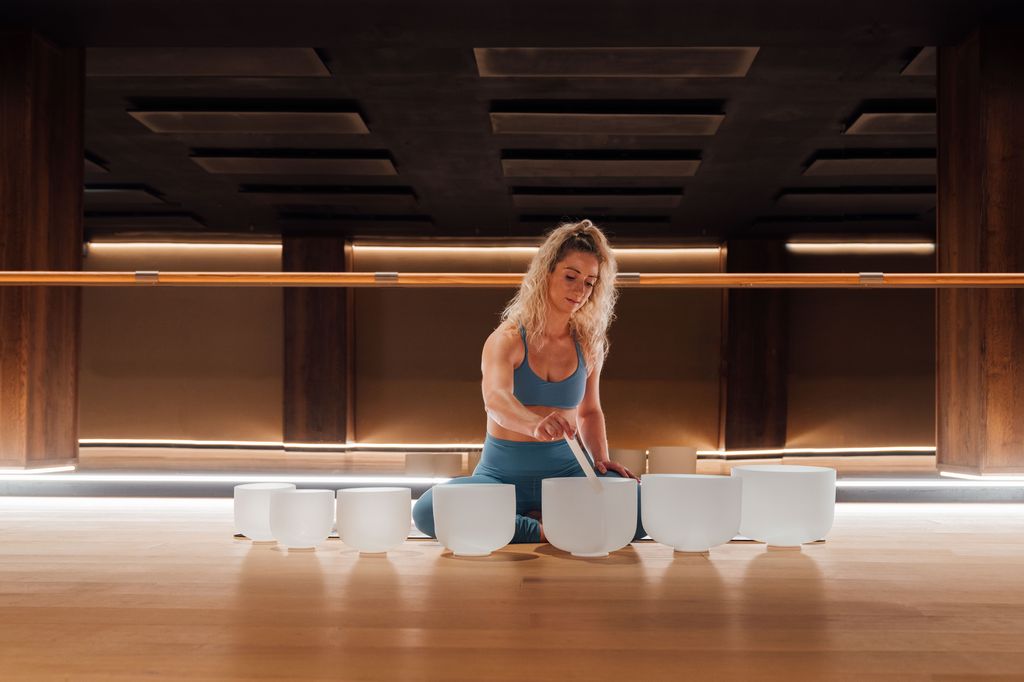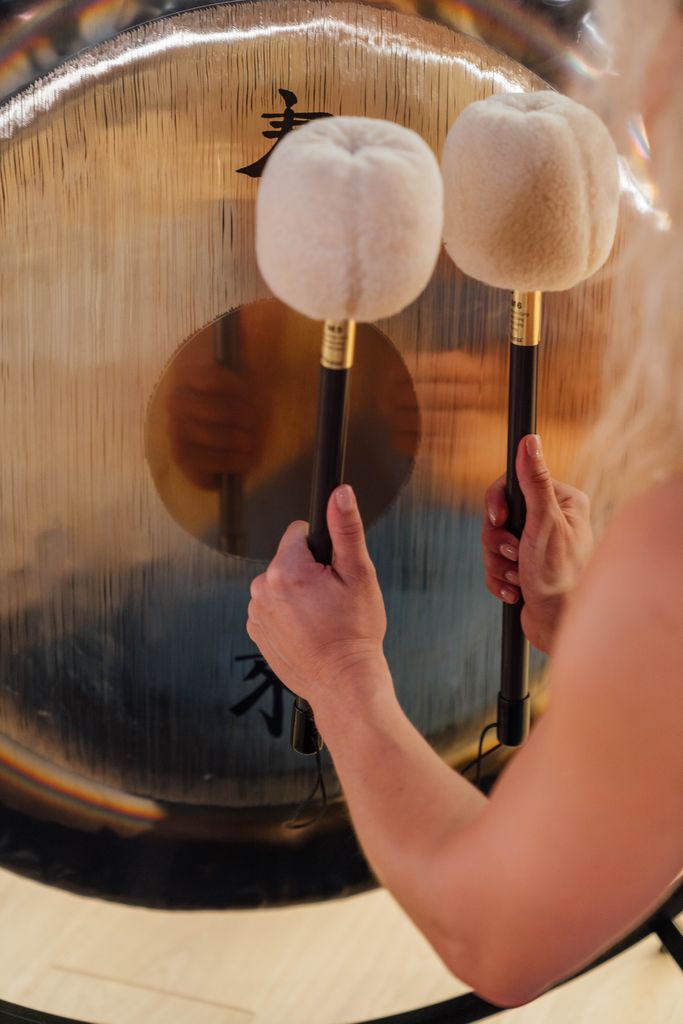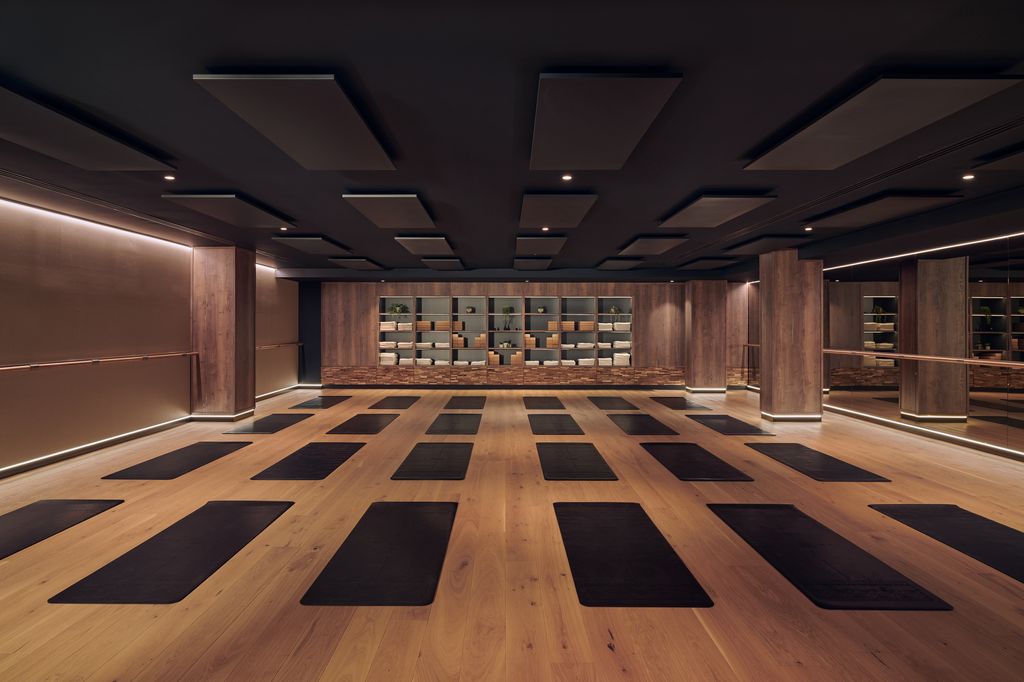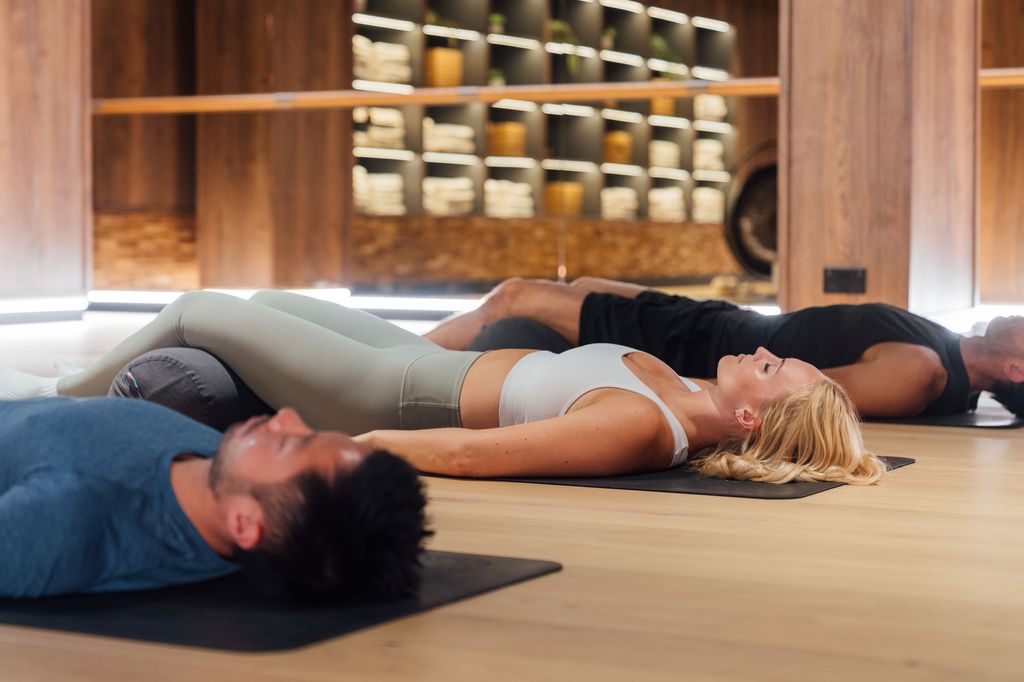If you find meditation near impossible but would love to experience the chilled-out, blissful vibes that radiate from people who manage to meditate daily, I'd like to introduce you to sound healing.
Sound healing was explained to me as 'meditation for lazy people' because it gives all the benefits of a meditation session, without having to worry about your mind wandering off - and as someone who consistently fails to meditate, it sounded right up my street.
"Sound healing is a great option for people who struggle with traditional seated meditation as there’s not a lot you need to do other than lie down, listen and absorb the vibrations from the sound," explains Clare Walters, Mind and Body Master Trainer at luxury gym group Third Space London.
"Sound healing can allow us to drop into a relaxation state much faster than in seated meditation, meaning that we can bypass many of the distractions that often draw us away from a meditative state in traditional meditation," she continues.
READ: How to be happy: 30 expert-approved tips to become your most optimistic self
What is sound healing?
A sound healing session is among the dreamiest things you can do for yourself when it comes to self-care. It involves lying in a cosy, atmospheric room, while sounds from gongs and crystal bowls wash over you.
All you have to do is lie there. Post-session, you'll float out of the room feeling ridiculously relaxed – and sometimes a bit spaced out.
DISCOVER: A life coach shares the simple habit that helps her stop overthinking - and we can all try it
I'm often surprised by how intense the sounds are in a healing session, feeling like the noises are taking over the whole space. Clare explains this overpowering sense is due to the vibrations created.
"Bowls and gongs are particularly resonant instruments, meaning that no microphones or amplification equipment is needed for the sounds to fill the room.
"By simply playing the instruments themselves, we are able to produce vibrations powerful enough to fill the room," she adds.
What are the benefits of sound healing?
If you're struggling with stress and anxiety, sound healing may be able to help, Clare says. "Sound healing allows us to tap into the parasympathetic nervous system in a way that requires minimal conscious effort from the individual, whilst still bringing about great stress-relieving rewards."
The main benefit that you’re likely to experience from sound healing is deep relaxation. "The sound vibrations help you to slow down the activity of the mind and drop into Theta brainwaves, which are the brainwaves we drop into during meditation and just before sleep. It’s when we’re in this state that we can access deep mental and physical relaxation," Clare says.
RELAX: The 20-minute ritual that switched off my busy brain instantly
"Sound healing can also help to boost creativity and learning, reduce anxiety and stress, and strengthen your immune system.
During your sound healing session, the nervous system is downregulated, meaning we shift from a sympathetic state, commonly referred to as fight or flight, to a parasympathetic state, the relaxation response.
"As this occurs, the heart rate slows, blood pressure reduces and the release of the stress hormone cortisol slows."
It's not just the sound itself that helps, though. During the sessions, nasal breathing and humming are sometimes included, which increase the release of nitric oxide into the bloodstream.
"This helps improve blood flow, lower blood pressure and stress, oxygenate cells and allows for better utilisation of the oxygen being inhaled. Together, this can help to reduce fatigue and strengthen the immune system," Clare says.
The more nitric oxide you secrete, the easier it is to get into a parasympathetic state. The more often you get into a parasympathetic state, the easier it is to stay there meaning your natural state will be calmer and happier, she adds.
How does sound healing work?
It sounds too good to be true, that simply lying down and listening to soothing sounds can help us to relax, but Clare explains that there's a complex reason it helps us to de-stress.
"The instruments played during sound healing are tuned to different vibrational frequencies which have different impacts on the body and the mind.
"It is said that emotions have different vibrational frequencies – emotions that we consider uncomfortable or unpleasant are said to vibrate at lower frequencies and joyful emotions at higher frequencies. Through sound healing, we can encourage the body to start to vibrate at a higher frequency, creating better conditions for more positive emotions to occur.
"Of all the senses, sound has the biggest impact on the brain, stimulating the slowing down of our brain waves from Beta to Theta which allows us to down-regulate the nervous system and find a state of relaxation. Sound stimulates both sides of the brain at the same time which may allow weaker neuronal pathways to develop, improving communication between the hemispheres."
How long will I feel calm after sound healing?
The effects of sound healing differ from person to person, says Clare. "For some, it might last for hours, whilst for others this could stretch into the next few days.
"The more often you practice sound healing, the easier it is to reach, and stay within, the parasympathetic state, meaning that you are likely to notice the beneficial effects for longer."
How often do I need to go to sound healing sessions?
I tend to only book into sound healing when I'm feeling particularly anxious, as an antidote to stress, but I wondered if it was something I should be doing weekly, like yoga or weight training.
Clare explains that my approach is the one they recommend, though. "We’d advise each person to work with as much as feels good for their mind and body, in balance with a well-rounded fitness routine. This might be once a month, perhaps once a week or maybe even more if your schedule allows."
Find out more about Third Space's Sound Healing sessions
For more inspiration on how to relax, visit HELLO!'s Happiness Hub













